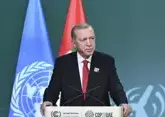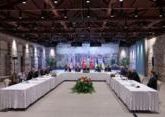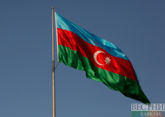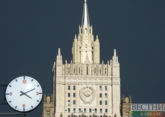Yesterday Baku hosted a conference titled “Security Problems in Eastern Europe and the Post-Soviet Area.” It was organized by the Topchibashi Center. Vestnik Kavkaza talked to Hussein Bakji, the head of the foreign relations department of the Middle East Technical University of Turkey, the Deputy Director of the Foreign Policy Institute, about Russia, Azerbaijan, and Turkey’s contribution to security of the Black Sea, Caspian Sea, and Middle East regions.
- How do you assess Azerbaijan and Turkey’s role in the security of the macroregion?
- First of all, Turkey and Azerbaijan play a global role in economic security. Projects implemented by the nations involve more than 60 countries. Especially, I would like to highlight the Silk Road Project from China to Europe. The countries have such high-level relations in the energy sphere that nobody could think about it 20-25 years ago. Moreover, our economic ties are improving year by year. SOCAR is one of major foreign investors in Turkey’s economy. Its investments in Turkish projects reached $17 billion. I’m sure that the ties will improve in many spheres. It’s important to say that the process is taking place not so much due to mutual dependence as Azerbaijan and Turkey’s desire to support each other.
- What do you think about Russia-Turkey relations?
- Relations with Russia are extremely important for Turkey in economy, energy, tourism, and other spheres. From the 1990s to 2015, our relations could have been called a honey moon. Then, we faced the crisis after shooting a Russian battle-plane down. However, today, our contacts have been restored. Cooperation with Russia is global as it covers the Caucasus and the Middle Asia. I should say that our relations with Russia influence Turkey’s contacts with many countries, from Azerbaijan to Turkmenistan. It means Ankara will do its best to prevent new crises.
Purchasing Russia S-400 missile defense systems was a highly important event for Turkey. As NATO withdrew its Patriot Air Defense Systems, Turkey was short of weapons protecting its air space. We needed missile defense and we had a right for protecting our territories and decided to choose the best available option in the market. So Ankara purchased Russian air defense systems. Of course, there can be no legally binding military union between Turkey and Russia. We speak about cooperation only as Turkey won’t leave NATO.
- What are Turkey’s views on the U.S. current strict policy?
- Presidency of Donald Trump turned out to be unpredictable. There is no any ideological approach in his policy toward Turkey, which we have seen before. Today Turkey has to be careful. Moreover, we realize our priorities: the U.S. is far away; Russia is our neighbor in the Caucasus and the Black Sea. I’m sure under Recep Erdogan and Vladimir Putin, Turkey and Russia will have no problems in bilateral relations. Today Russia is a peacemaker in Syria and Turkey in fact communicate with Damascus through Russia. I think in the near future, leaders of Turkey, Russia, and the U.S. will meet to discuss the situation in Syria and Iran.
- What are prospects of the third military operation of Turkey in Syria?
- Unless the U.S. and Russia give go-ahead, Turkey won’t intrude Syria again. Probably, it will use air space which is controlled by Russia, like it was in Idlib and Afrin. However, to send ground troops, Turkey needs consent of Putin and Trump. So, Turkey will continue its power balance policy in the region.










